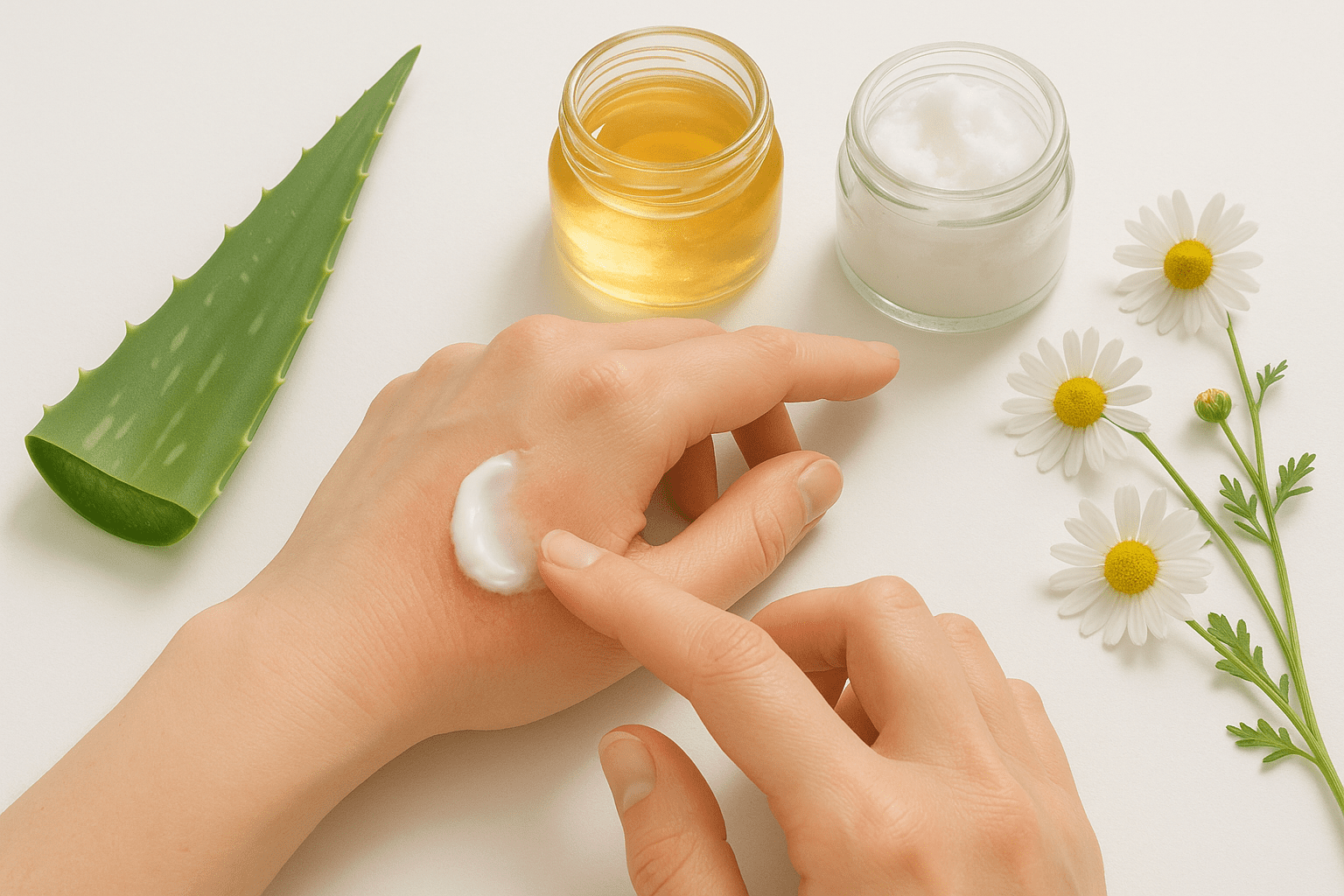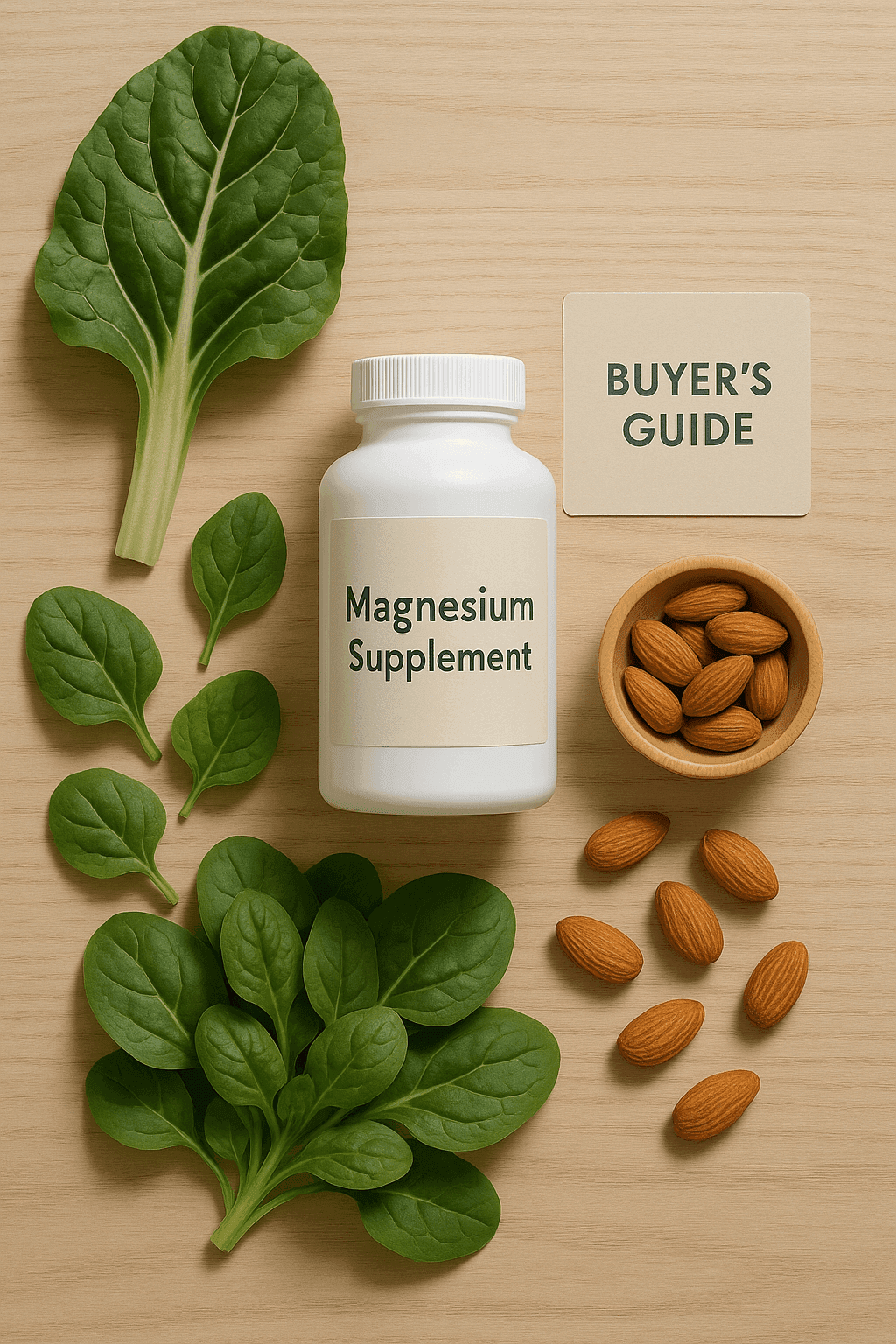Eczema Itching Relief That Actually Works
Struggling to find eczema itching relief that truly works? You’re not alone. Every day, millions of people desperately search for answers to soothe the relentless itch, burning, and irritation caused by atopic dermatitis. The truth is, eczema isn’t just a skin condition—it’s a constant battle that affects your sleep, your mood, and your quality of life.
That itching sensation can be so intense it feels impossible to resist scratching. And the more you scratch, the worse it gets. People living in dry or cold environments—like much of the USA, UK, and Canada—often face even more severe flare-ups due to harsh weather, indoor heating, and low humidity levels. Sadly, traditional prescription creams often offer only temporary relief and come with side effects like skin thinning and increased sensitivity over time.
But here’s the good news: you don’t have to suffer in silence or depend on steroids for the rest of your life. A growing body of research supports natural and holistic approaches that offer real, lasting eczema itching relief. These remedies don’t just mask the symptoms—they help heal the skin from the inside out by boosting moisture retention, calming inflammation, and rebalancing the immune response.
In this guide, you’ll discover some of the most effective, safe, and dermatologist-approved natural treatments to relieve eczema itching. Whether you’re dealing with occasional flare-ups or chronic symptoms, these methods are designed to work with your body—not against it. From powerful plant-based oils to anti-inflammatory herbs and soothing skin rituals, there’s a solution here for everyone, no matter where you are—be it the USA, UK, or Canada.
Let’s dive in and explore the top 7 natural remedies that deliver fast, gentle, and proven eczema itching relief—without harsh chemicals or pharmaceutical side effects.
Table of Contents
1. Colloidal Oatmeal Baths – A Classic Remedy for Eczema Itching Relief
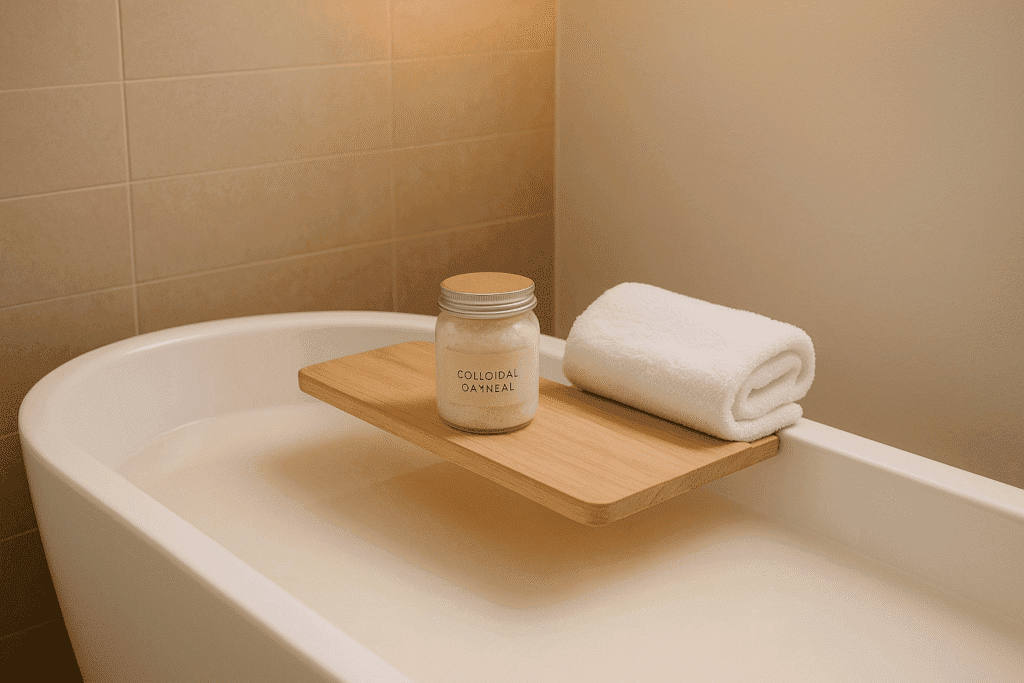
Looking for a gentle yet effective way to achieve eczema itching relief? One of the most trusted and dermatologist-approved remedies is the use of colloidal oatmeal for eczema itching. This simple, natural treatment has stood the test of time—and for good reason. It’s a skin-soothing powerhouse that delivers fast, noticeable comfort without the harsh side effects of synthetic creams.
Why It Works for Eczema Itching Relief:
Colloidal oatmeal is made by grinding oats into an ultra-fine powder, allowing it to dissolve easily in water and be absorbed by the skin. But this isn’t just any bath additive—colloidal oatmeal is rich in avenanthramides, which are potent antioxidants with strong anti-inflammatory and anti-itch properties. These compounds help to calm the skin, reduce redness, and relieve the unbearable itching that often accompanies eczema flare-ups.
When your skin is dry, irritated, and inflamed, the protective barrier becomes compromised. Colloidal oatmeal helps reinforce that barrier, locking in moisture and shielding your skin from environmental irritants. It forms a protective film over the skin, soothing rough patches and reducing the urge to scratch—a key step in preventing infection and worsening of the condition.
How to Use Colloidal Oatmeal for Maximum Eczema Itching Relief:
- Start by running a lukewarm (not hot) bath—hot water can strip your skin of essential oils and make eczema symptoms worse.
- Add 1 cup of fragrance-free colloidal oatmeal to the water, stirring well to ensure even distribution.
- Soak your body for about 15 to 20 minutes, allowing the oatmeal to work its magic.
- When you’re done, gently pat your skin dry with a soft towel—never rub, as this can aggravate already sensitive skin.
- Immediately follow up with a rich, unscented moisturizer to lock in hydration and prolong the soothing effects.
Many people experience significant relief after just one or two oatmeal baths. For best results, incorporate this into your skincare routine a few times a week or as needed during flare-ups. It’s safe for both adults and children, making it a versatile go-to for anyone seeking real, gentle eczema itching relief.
2. Coconut Oil – Skin Barrier Protection & Moisturizer in One for Eczema Itching Relief
If you’re hunting for a powerful yet natural solution for eczema itching relief, look no further than coconut oil for eczema relief. This tropical oil isn’t just for cooking—it’s a natural skin savior that deeply hydrates, heals, and shields sensitive, irritated skin. In fact, virgin coconut oil has become a go-to remedy among holistic dermatologists and eczema sufferers alike, thanks to its unmatched ability to moisturize and protect.
Why Coconut Oil Works for Eczema Itching Relief:
Virgin coconut oil is packed with lauric acid, a fatty acid known for its antimicrobial, anti-inflammatory, and deeply moisturizing properties. Eczema-prone skin often has tiny cracks in the surface, which makes it more vulnerable to bacteria, allergens, and moisture loss. Coconut oil helps by repairing the skin barrier, locking in hydration, and preventing harmful microbes from entering and worsening the condition.
But that’s not all. The soothing texture of coconut oil calms inflamed patches and eases that maddening itch that eczema is known for. It’s especially beneficial when applied to raw or flaky areas, where its emollient action creates a protective seal and speeds up healing. Whether you’re dealing with dry winter air or a hot, dry climate, coconut oil can provide the natural moisturizer for eczema your skin is craving.
How to Use Coconut Oil for Eczema Relief:
- Begin with clean, slightly damp skin—ideally right after a bath or shower to trap in moisture.
- Warm about a teaspoon of virgin coconut oil between your palms until it becomes liquid and silky.
- Gently massage it into affected areas, focusing on spots that tend to crack or feel rough and itchy.
- For best results, repeat this process twice daily, morning and night.
It’s crucial to use organic, cold-pressed virgin coconut oil—free from fragrances or additives that could irritate eczema-prone skin. This ensures you’re getting the full therapeutic benefit without introducing any harsh chemicals.
In short, when it comes to eczema itching relief, coconut oil offers a dual benefit—it’s both a skin barrier repair agent and a natural moisturizer for eczema. With consistent use, many users report smoother skin, fewer flare-ups, and a noticeable reduction in itching and inflammation.
3. Aloe Vera Gel – Nature’s Cooling Anti-Itch Remedy
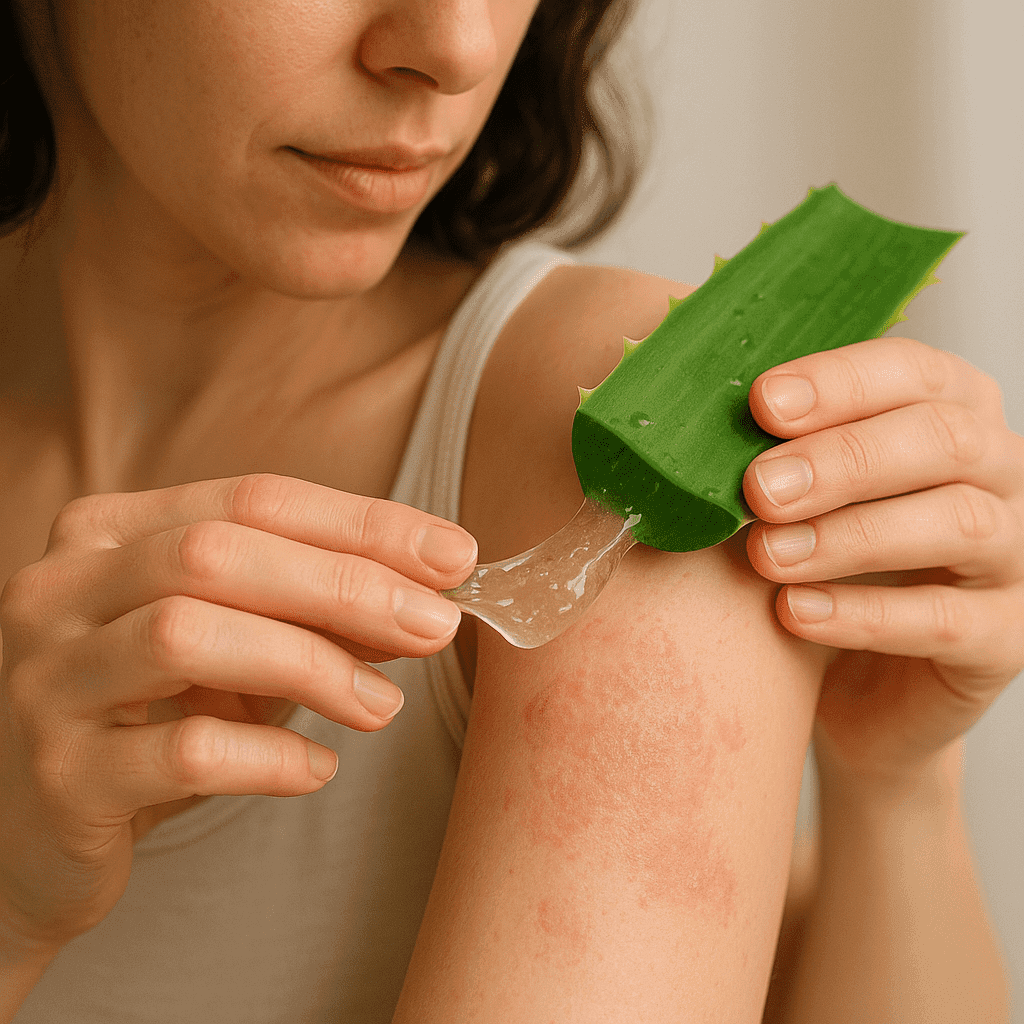
If you’re searching for a gentle, natural way to ease the discomfort of eczema, aloe vera for eczema itching is a time-tested remedy worth considering. Especially for adults with sensitive skin in the USA, UK, and Canada, aloe vera offers a refreshing, plant-based solution. Known for centuries as a skin soother, this humble succulent is now gaining recognition as a cooling remedy for eczema that calms flare-ups and reduces irritation without harsh chemicals.
Why it Works
Aloe vera is rich in polysaccharides, compounds that help boost hydration by locking in moisture—an essential factor in managing eczema-prone skin. These natural sugars also support skin repair and regeneration. Additionally, aloe vera contains anti-inflammatory properties that can help soothe redness and itching. When applied cold, the gel enhances this effect, delivering quick itch relief for sensitive skin.
How to Use
- Apply pure aloe vera gel or extract gel directly from a fresh aloe plant
- Use 2–3 times daily on affected areas
- Refrigerate the gel before use for added cooling and soothing relief
Note: Avoid store-bought aloe gels that contain alcohol, artificial fragrances, or dyes, as they can further irritate sensitive skin.
4. Manuka Honey – Antibacterial Powerhouse for Eczema Relief
Looking for a natural solution to help soothe and heal eczema-prone skin? Consider Manuka honey for eczema healing—a powerful, plant-based remedy that offers more than just sweetness. Especially effective on broken or inflamed skin, Manuka honey is gaining attention as a trusted option for natural healing for eczema and gentle eczema wound care.
Why It Works
Raw Manuka honey, particularly those rated UMF 10+ or higher, is packed with natural antibacterial and wound-healing properties. It helps create a moist, protective environment that supports skin repair while preventing infection in cracked or open lesions. According to WebMD , Manuka honey may also reduce inflammation and aid in tissue regeneration—both crucial for managing chronic skin conditions like eczema.
How to Use
- Gently cleanse the skin with warm water
- Apply a thin layer of raw Manuka honey to the affected area
- Leave it on for about 30 minutes, then rinse off with lukewarm water
📌 Pro Tip: Always choose raw, medical-grade Manuka honey and avoid products with added sugars or preservatives.
Whether you’re seeking a cooling, natural treatment for eczema or a gentle aid for broken skin, Manuka honey could be a powerful addition to your skincare routine.
5. Apple Cider Vinegar – Restores Natural Skin pH
When it comes to eczema itching relief, simple, natural remedies like apple cider vinegar (ACV) are often overlooked—but they can be surprisingly effective. This pantry staple helps balance the skin’s pH, creating a healthier environment for healing.
Why It Works
ACV is mildly acidic, which helps restore the natural pH of the skin—often disrupted in individuals with eczema. Maintaining a balanced pH is important for reducing irritation and preventing flare-ups. Additionally, ACV may help reduce bacterial overgrowth on the skin’s surface. According to NIH, diluted ACV has been used as a home remedy to soothe eczema-related inflammation.
Looking to rebalance your body from the inside too? Don’t miss this internal guide on magnesium deficiency and restful sleep—a helpful read for overall wellness.
How to Use
- Mix 1 part organic apple cider vinegar with 2 parts filtered water
- Apply with a clean cotton pad to affected areas
- Leave on for 10–15 minutes, rinse thoroughly, then moisturize
🚫 Warning: Never apply undiluted vinegar directly to broken or sensitive skin, as it can cause irritation.
6. Sunflower Seed Oil – Lightweight and Safe for Daily Use
If you’re searching for a gentle, natural moisturizer that fits seamlessly into your daily routine, sunflower seed oil is an excellent choice. This lightweight oil is perfect for those with sensitive or eczema-prone skin, offering a simple yet effective solution for dry skin relief.
Why It Works
Sunflower seed oil is rich in linoleic acid and vitamin E, both of which support healthy skin function. Linoleic acid helps strengthen the skin’s natural barrier and reduces trans-epidermal water loss, which is often elevated in people with eczema. Meanwhile, vitamin E provides antioxidant protection, helping calm inflammation and boost hydration levels.
How to Use
- Choose a cold-pressed, organic sunflower seed oil for the purest benefits
- Apply it on damp skin immediately after a bath or shower to lock in moisture
- Use twice daily as part of your eczema skincare routine for best results
Whether you’re looking for eczema-friendly oils or just a clean, plant-based dry skin remedy, sunflower seed oil offers a safe, affordable, and effective option you can feel good about using every day.
7. Chamomile Tea Compress – Herbal Relief for Inflamed Skin
If you’re struggling with nighttime itchiness or flare-ups, a chamomile compress for eczema itching might be the gentle, natural relief you’ve been looking for. This soothing remedy is ideal for winding down in the evening and calming irritated skin before bed.
Why It Works
Chamomile contains apigenin, a plant-based flavonoid known for its anti-inflammatory and calming properties. When applied topically, it can help reduce redness, itching, and swelling—making it a great choice for those seeking a herbal remedy for itchy skin that’s easy to prepare and use at home.
How to Use
- Prepare a strong cup of chamomile tea and let it cool down
- Soak a clean, soft cloth in the tea
- Apply gently to affected skin for 15–20 minutes
- Pat dry and follow up with a nourishing moisturizer
☕ Best for evening use as part of your relaxing natural eczema relief at night routine. This calming compress can help ease discomfort and prepare your skin—and mind—for restful sleep.
Bonus Tips for Long-Term Eczema Management
Managing eczema isn’t just about soothing flare-ups—it’s also about adopting consistent, skin-friendly habits that support long-term relief. Whether you’re looking for better eczema prevention or want to fine-tune your daily routine, these simple lifestyle adjustments can make a big difference.
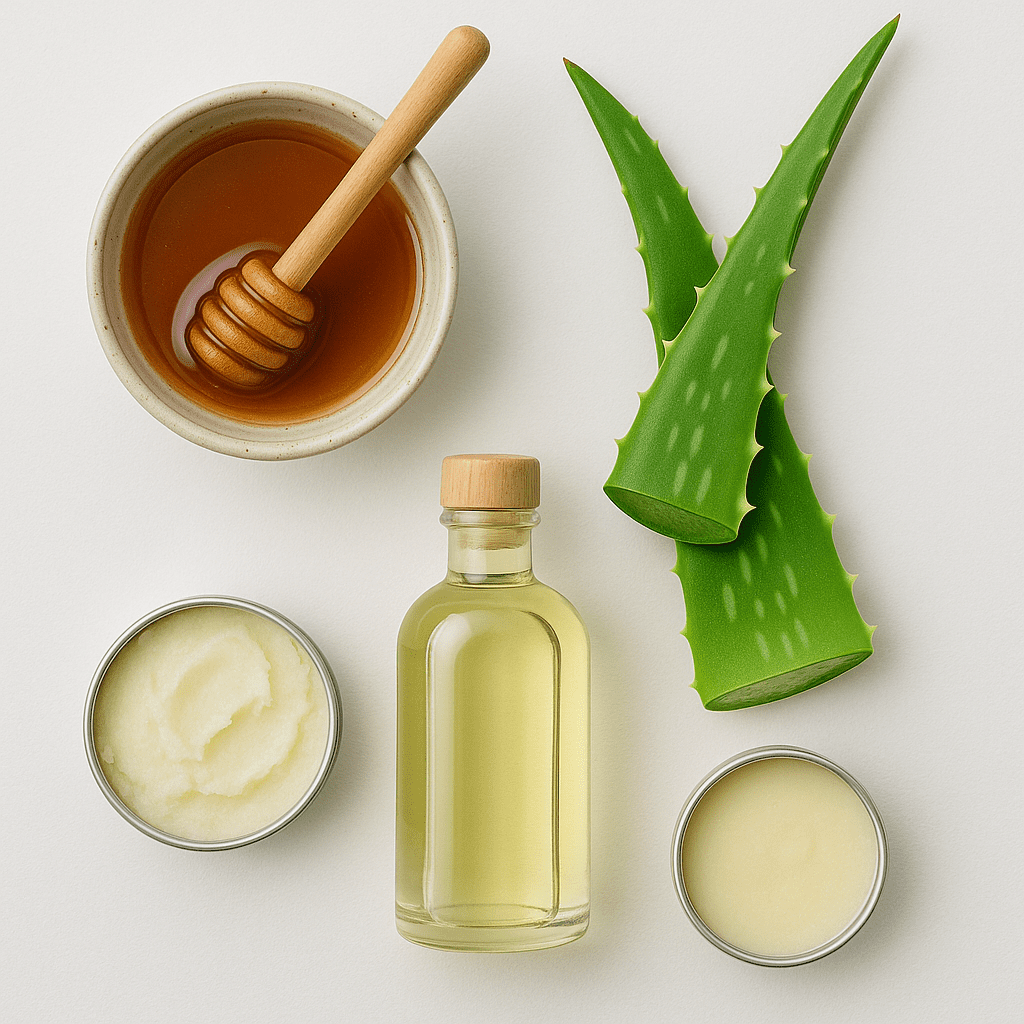
Best Eczema Practices for Everyday Life
- Moisturize right after bathing: Lock in moisture by applying a rich, fragrance-free moisturizer immediately after showering or soaking.
- Avoid harsh irritants: Steer clear of synthetic fragrances, sulfates, and parabens—common culprits that can trigger eczema.
- Wear breathable fabrics: Choose natural materials like cotton to reduce irritation and allow your skin to breathe.
- Use a humidifier in dry seasons: Maintaining moisture in the air helps prevent dry, flaky skin during winter or in low-humidity environments.
- Eat an anti-inflammatory diet: Load up on wild salmon, leafy greens, berries, and olive oil to support skin health from the inside out.
- Stay well hydrated: Drinking 8–10 glasses of water daily helps keep your skin cells hydrated and functioning properly.
Building these habits into your daily routine is a powerful way to reduce flare-ups and keep your skin calm, balanced, and healthy over time.
Frequently Asked Questions (FAQ)
Got questions about natural eczema care? You’re not alone! Here are answers to some of the most common concerns:
Q1: May I use more than one remedy simultaneously?
Yes, but be careful. For example, aloe vera + coconut oil is a soothing combo many people love. Always perform a patch test before applying anything new to larger areas of skin.
Q2: Is this safe for children?
Most of these treatments are generally mild, but it’s best to consult a pediatrician before trying anything new on a child’s sensitive skin.
Q3: How soon will I see results?
Natural remedies like aloe or oatmeal can offer immediate itch relief, but long-term improvement depends on consistency and avoiding known triggers.
Q4: Can eczema be treated with diet?
Yes! Many people with eczema report fewer flare-ups after eliminating dairy, gluten, and processed sugars from their diet. An anti-inflammatory eating plan can support skin health from within.
Q5: Should I still be using steroid creams?
Do not stop steroid creams cold-turkey. Instead, work with your doctor to transition slowly while supporting the skin naturally with moisturizers and barrier-friendly routines.
These FAQs offer a foundation for managing eczema thoughtfully and safely—always listen to your skin and speak with a healthcare provider when in doubt.
Eczema Itching Relief: Your Journey to Naturally Healed, Itch-Free Skin Starts Here
Living with eczema doesn’t mean living with constant itching, redness, or discomfort. While eczema can be a long-term condition, gentle and natural remedies can help calm flare-ups and restore your skin—without relying on harsh chemicals or steroid creams.
From soothing oatmeal baths and cooling aloe vera to the healing power of Manuka honey and nourishing sunflower oil, these simple, dermatologist-backed solutions support your skin’s natural recovery process—and they’ve made a real difference for many people seeking lasting relief.
✅ Keep in mind: Natural healing takes patience. Stay consistent, patch-test any new ingredient, and support your skin from within with good hydration, nutrition, and stress care.

